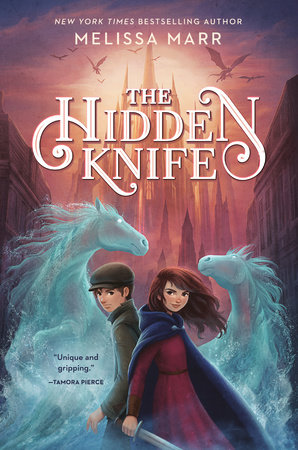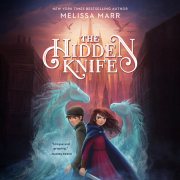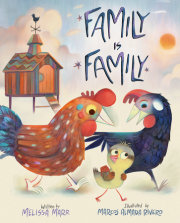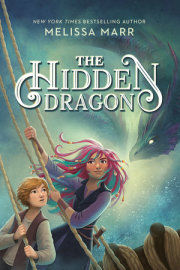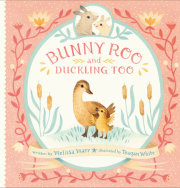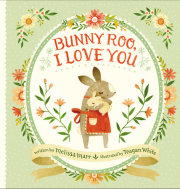PROLOGUE The gargoyles were the first creatures to leave the Netherwhere. They hadn’t planned it, and they didn’t do it to impress the rest of the things that lived between worlds. They were simply curious.
There was a door. On the other side of it was sky. The air tasted lighter, and the light was gentle. In the Netherwhere, the sky was indigo with streaks of green and purple. Sometimes, there were thick pinks. The new sky was brighter.
One of the eldest gargoyles, a giant-eared wonder called Rupert, stood at the door to the new world and watched as hundreds of his kind took flight. He waited, trying to decide if he wanted to go through the door.
The thought of flying without so much effort was tempting. In the new world’s lighter air, even the weightiest among them soared like the faeries could. And as if summoned by the mere thought, one of the faeries darted at Rupert. The faeries’ vicious teeth couldn’t pierce stone, but that never stopped them from trying. The tiny clack of faery teeth was almost their version of a greeting by now.
Rupert shook the beast off as its little teeth scraped his shoulder. “Stop that.”
“All of you?” The faery nodded toward the door. “All go?”
Rupert looked back at the forest. The tree boughs were nearly empty. Maybe they had already left, or maybe they were coming back now. Or later. Time was different to gargoyles. It was forward and backward at once.
“For now,” Rupert said.
The faery’s wings made a whirring sound, beating faster than anything should rightly move, but that was faeries: always too fast, always too excited; really, they were too much of
everything.
“We will go, too!” the faery said.
Rupert nodded slowly. He might have said more, but by the time he’d lifted his eyes, the tiny pest was gone. It flew away in a blur of glittering wings and buzzing sounds.
As he watched it go, Rupert understood why some creatures lied. He wished he could lie to the faeries to prevent them from going through the door, but gargoyles
didn’t lie.
Rupert shook his feathered head and flew into the soft blue sky on the other side of the door. As he gazed down at the ground, he saw strange featherless creatures that looked a lot like the faeries but lacked wings. They swarmed all over fields and towns, clustered on boats and atop carriages, and darted in and out of buildings.
Other beings from the Netherwhere were also spilling into this new world. The opening of the gate was hard to resist. There were new lands, new adventures, and when you lived such a long life, the new was tempting.
Rupert watched it all—kelpies running toward waterways, wee dragonets seeking warm hearths, and faeries hurtling toward forests. The two-legged creatures who were here first stared at the new arrivals, too, sometimes in awe, sometimes in shock.
Rupert would find a purpose here. A reason. A mission.
The tall spires and jagged arches of some of the most splendid buildings here didn’t draw his attention. He continued on, feeling the hum of magic, the drawing of wards, the prickle of ley lines.
The lines in the new world—great underearth streaks of energy to use for magic—were tucked under the soil. These ley lines were how the gargoyles saw future things and now things. They were particularly strong here, and Rupert’s mind felt muddled.
He flew toward one of the plainest buildings he’d seen in this world, knowing that the plainest exterior was often a disguise for the most interesting discoveries. He would make a nest here, a place to return and watch this new world.
Rupert settled down on the ledge, and those gargoyles that followed his leadership came in for a landing all around him. He stretched his wings wide and stared back at the beings on the ground, who were craning their necks to see him. They opened their mouths, but nothing they said aloud made sense. Many of their thoughts were noise, but Rupert pulled a taffy-like piece of energy from the ley line and began to learn their language.
“What are you?” he asked.
The creatures swarmed at first. Then one of them met his gaze and said, “I am Tik, a human, a
boy. A student here at the school.”
The human boy creature was a spindly thing. A long twist of hair was bound at the back of his head, reminding Rupert of a kelpie’s tail. His skin was dark, like the gargoyles’, as well.
Tik held a metal stick that was as pointed as Rupert’s own beak, but long and thin. Rupert stared at it curiously.
“It’s a sword. I’m training to serve the Glass Queen.”
“Why?”
Then Tik laughed. It was a happy noise, especially for a creature determined to serve a queen. “You’re a strange . . . What
are you?”
“Gargoyle. From the Netherwhere.”
“Nightshade! Sweeney! Come here.” Tik waved to a few other small humans. When they reached him, he said, “The astronomers were right. The World Door opened.”
“Not
the World Door. Just a door between
your world and the Netherwhere,” Rupert corrected, peering at the other humans.
Nightshade was a keen one, and he had the smell of the Netherwhere already on him. Sweeney had a strange, rounder shape; he seemed soft where Nightshade and Tik were narrow.
“Did everything come through?” Nightshade asked with more than a touch of fear in his voice.
Rupert eyed him with more interest. “The faeries did. Kelpies . . .”
Nightshade’s eyes widened, but he said nothing.
“Kelpies?” Sweeney asked.
“Water horses,” Nightshade whispered.
Rupert explained: “Four-legged beasts that breathe water and land air. Hide the color of blue milk. Carnivorous, messy things. They will be a problem for your kind. Our sort is not meat, but you are . . .
all meat and bone.”
“Yes. The queen will need to know,” Tik said. “I’ll tell the headmaster and request a meeting with Her Majesty to share what you learn.”
“If
he will let us meet her,” Sweeney muttered.
Rupert looked at the boys. He was not sure what a headmaster was, or who served whom here. What he did know was that the door opening would lead to changes—and these young creatures might be in peril. Gargoyles were not left this defenseless when they were young.
Sweeney walked away to join a female human who was swinging her pointy sword-thing at a group of boys. The girl was dark-eyed and dark-haired. Her arms had thin white lines where skin had bled and healed again. And she was as tall and strong as the boys, who were all trying to take her weapon.
Rupert stretched his clawed feet out, scratching the ledge in the process, and watched the girl laugh as she unarmed each boy. “Tell me of this queen,” the gargoyle said.
Young Tik was eager to do so; his lips curved in a curious expression that Rupert understood meant happiness, because of the words that followed.
“She’s only a few years older than us, but already she’s a queen. She’s going to create a new empire, rule the world, and if we’re good enough, we can serve her.” Tik shoved his shoulders back. “She’s called Evangeline . . . like an avenging angel.”
“Angel?”
“You know. Winged creatures from another world.”
Rupert paused. “A gargoyle. Your queen is a gargoyle?”
Tik laughed again. “No. She’s a human like me, but wiser and kinder and better in all ways. She looks after us and will protect our borders. She is our guardian.”
Tik sounded like he believed his own words, but Nightshade’s expression said that he wasn’t so sure he agreed with Tik.
These humans would all need watching over, and the gargoyles were the right ones to do it. Rupert could already see enough of the future to know that their queen was not to be trusted.
Looking after others wasn’t just about borders, but about adding good to the world—any world.
Yes, it felt right to be here. It had been too long since he’d had a proper mission. Watching over these featherless creatures so he could help when this queen of theirs became trouble was a worthy reason to stay.
Part I TWENTY YEARS LATER . . . CHAPTER 1 Vicky Hit me!” her mum said. Kathleen Wardrop sounded frustrated, which was unusual when they had weapons in hand, but Vicky’s sister Lizzie was being contrary.
They were all in the training room—in what was intended to be the house’s ballroom, but really balls weren’t quite the things for the Wardrop family. Instead, twelve-year-old Vicky; her older sister, Lizzie; and baby sister, Alice, went there every day to train with their mother, Kathleen Wardrop. Sometimes Lizzie begged off and spent a few hours playing with Alice so Vicky could do ward training. Today, though, was swords. Lizzie was required to do some sword practice at least two times a week, no matter how much she fussed.
“I
did hit you,” Lizzie said, voice slightly muffled by the fencing mask she wore. It made her sound older, stranger. “I touched the tip of my sword to your arm.”
Their mother, who did not wear a mask when she trained, repeated a frequent objection: “That is not a
hit. If they come for you—”
“But—”
“You need to protect yourself and your sisters,” their mum said.
“If you were an actual enemy—”
“Trust no one, Lizzie. No one but your sisters.” Their mother sounded grave. “Remember, anyone can betray you.”
“Not you,” Lizzie pointed out. She stood, almost as tall as their mother, with her shoulders back. “You would die for us. Poppa, too.”
“We would.” Their mother hugged Lizzie. “But when anyone stands before you with a drawn weapon, you do not
tap them. You fight.”
“Yes, Mother,” Lizzie said. She always agreed, but for reasons that Vicky couldn’t understand, Lizzie did not like to fight. She was kind in ways that Vicky found confusing, gifted in household affairs, and seemingly unable to fight.
Lizzie left the center of the floor, where they practiced, and headed to the wall racks where swords, staffs, and other weapons hung.
Their mum motioned to Vicky. “Next.”
“Ready!” Vicky was prancing like a newborn kelpie on rough waves. Sword time was one of the best parts of the day. Well, to
her it was.
Vicky bowed to her mother and began to circle her, seeking an opening. She made a few strikes that weren’t likely to land, but the openings were there. Ignoring openings was silly.
Within a few moments, the room seemed to fade. The sound of feet on the tiled floor, the clank and slide of steel on steel, the steady exhales as Vicky and her mother fought: only these remained. The rest was gone. Vicky no longer heard the chatter from her baby sister or the soft humming as her elder sister watched. This was what sword fighting was. It made the world vanish, like a fast ballet where each movement was like leaping into the air, and each response was the difference between landing to applause or flopping on the stage like a distressed fish.
Eventually, Vicky’s blade made contact with her mother’s left side. If Vicky’s sword had been sharp, she’d have left a slice on her mum’s ribs, but they only practiced with blunted swords.
“Excellent, Vicky Love,” her mother said. “Again.”
And so they went for the next hour.
Finally, Vicky felt as if her muscles were unable to continue. They’d fought with speed—not drills, not corrections—simply full-speed swords flashing and clattering. It was both one of the hardest things her mother asked her to do and one of the most exciting. She was going to need to nap and curl up with a good book afterward.
“Lizzie?” her mother called. “Your sister is tired. Will you fight now, or will I make Vicky continue?”
To some, Vicky supposed, their mother’s tactics might seem cruel, but Kathleen had once guarded the Glass Queen herself. Vicky was sure that the habit of being prepared for disasters was hard to quit; at least that was what Poppa said.
Lizzie sighed. “Fine. I’ll never be as good as Vicky, but—”
“You can be good enough to be safe,” their mother reminded her sharply. “That’s all you need.”
Then she glanced at Vicky. “And you might get good enough at proper manners to pass for a nice young lady.”
“Doubtful,” Lizzie said with a grin.
“Dou’ful!” Alice cheered and clapped. “Dou’ful Vicky!”
Vicky smiled at her sisters as she tugged off her fencing mask. They were all so different. Even though Alice was still a tiny thing, she was already a person of her own. She laughed most of the time but could also throw a good tantrum. Alice, when she was grown, would have a temper that made Vicky and Lizzie seem positively angelic.
“Play with Alice while Lizzie trains,” her mother said.
Lizzie, practical like their father, added, “Perhaps fix a few sandwiches—with vegetables. Lunch.”
Her mother sighed, glanced at the wall clock in the far end of the room, and nodded. Her voice was light when she said, “Fine. I suppose we all must
eat, too.” She looked at Lizzie. “Thank you, dearest. I do forget, don’t I?”
Alice, however, plopped on the floor. “No veg’bulls! Have carrots!”
“Of course, sweetling, no vegetables for you.” Their mum scooped Alice into her arms, without so much as touching the youngest Wardrop with her dull-edged sword, and handed her to Vicky. “Alice will have carrots instead of vegetables.”
Lizzie and Vicky shook their heads, but that was that. They would pretend that carrots weren’t
actually a vegetable to keep Alice’s temper at bay.
Later, when they’d had their sandwiches—which their father had already made for them—Vicky and Alice sat against the wall of the ballroom. Lizzie and their mother were going over defenses with a sword and dagger.
The room was high-ceilinged, and there were beautiful windows up high that let in light—and the occasional gargoyle.
“Water?” Alice asked.
Vicky shook her head and whispered, “No. Mama says I can’t make a lake inside again.”
“Gargle story,” Alice ordered.
So Vicky started a gargoyle story: “The gargoyles were the first to leave the Netherwhere. A door in the sky opened, and they came to our world.”
Everyone knew this story, but Alice loved hearing it over and over.
“They weren’t alone,” Vicky continued. “The faeries came, and the kelpies, too.”
“Gargles best.”
Vicky nodded. “Yes, they’re our friends.”
“Kelpies bite,” her sister pronounced with a scowl.
“Yes, and faeries do, too.” Vicky wasn’t sure about the dragonets, though. They were often nothing but fading puffs of smoke by the time people even noticed them.
One of the family’s gargoyles flew into the ballroom and winked at her, as if he’d heard her talking about them. The clatter of stone wings should have been loud, but gargoyles moved silently. Whatever magic made them—and the tiny biting faeries and strangely adorable dragonets—didn’t always make sense.
Alice blew the gargoyle a kiss, and Vicky waved at him.
Rupert nodded at them but went on to land near their mother. Gargoyles were faithful to those they selected. This one had followed Vicky’s mother home from school years ago. He and the other Wardrop gargoyles patrolled like soldiers, carrying messages to Kathleen Wardrop. Kathleen relied upon them to help keep her family safe. With wards, with gates, with swords, and with spies, the Wardrop children were as protected as could possibly be. Vicky, despite all the training and drills for Incidents, could not imagine that there was any possible way that they would ever be in danger.
Copyright © 2021 by Melissa Marr. All rights reserved. No part of this excerpt may be reproduced or reprinted without permission in writing from the publisher.

